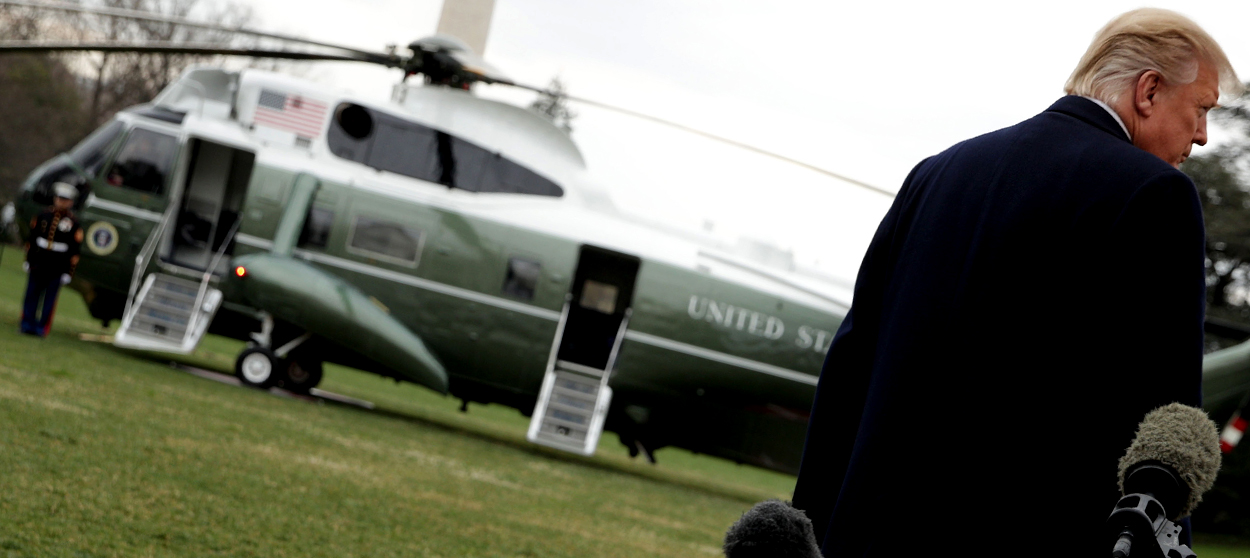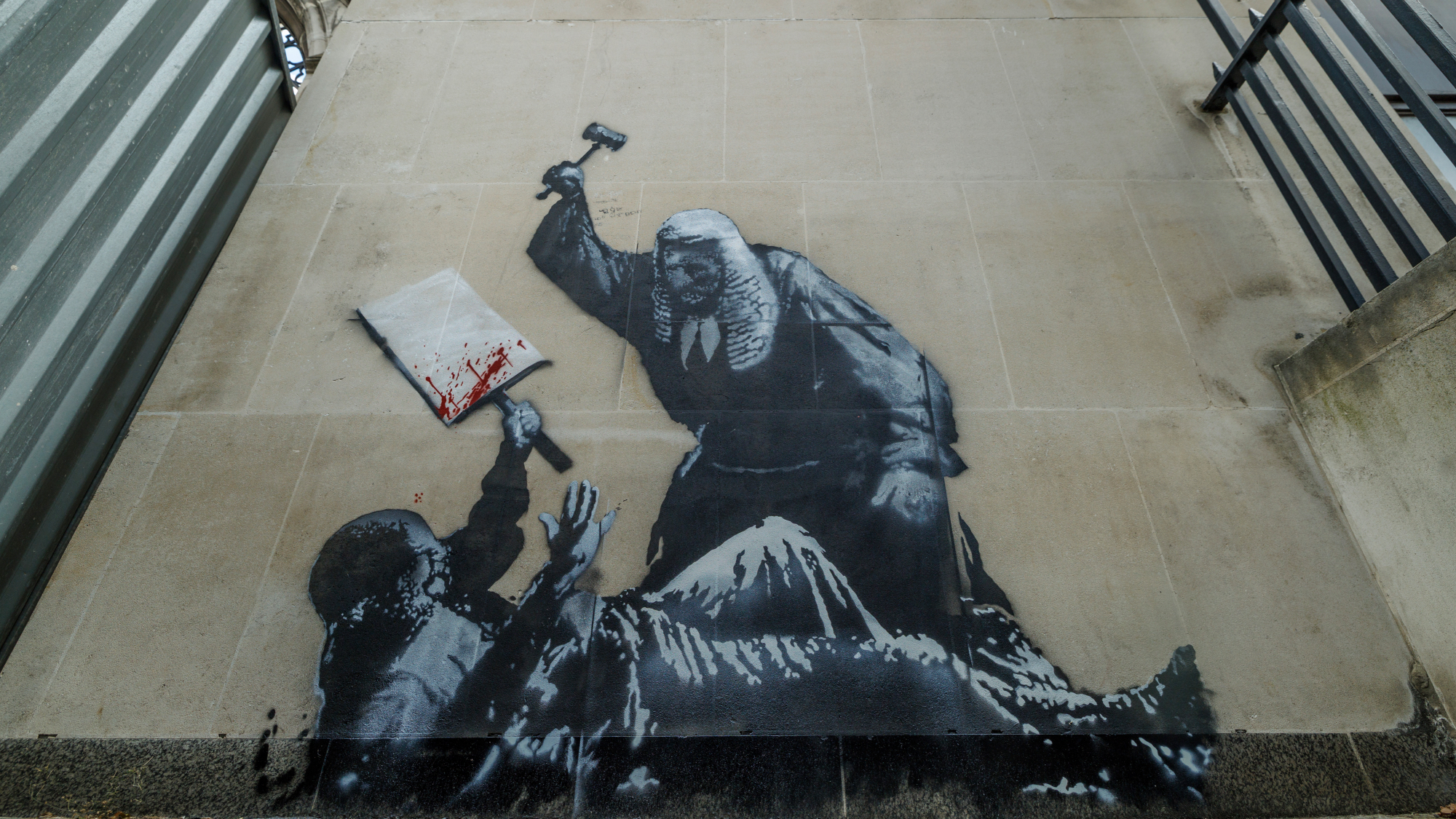The Mueller fallout is only beginning
This isn't over yet


News that Special Counsel Robert Mueller had slipped his Godot-like report under Attorney General William Barr's door late Friday afternoon brought American politics to an immediate, turntable-screeching standstill. The weekend was filled mostly with empty speculation, premature right-wing gloating, and leftists yelling at liberals about how the whole thing had been a waste of time, based on reports that Mueller would not be issuing any further indictments. In other words, it was as if the country had received a maddeningly vague voicemail from the doctor about lab results right before the office closed for the weekend. We all spent two days rabbit-holing down the political equivalent of WebMD.
And then on Sunday, the first shoe dropped, and it seemed like perhaps conservatives' football-spiking might not have been entirely unwarranted. In the mid afternoon, Barr released a short, four-page appraisal of the long-awaited probe's findings. It claimed, regarding Russian meddling, that "the Special Counsel did not find that the Trump campaign, or anyone associated with it, conspired or coordinated with the Russian government in these efforts." That unambiguous judgment is difficult to spin for those who were hoping that Mueller would find clear, legally actionable links between the Trump campaign and the Russian sabotage operation. Because the letter also notes that there are no sealed indictments in this matter, the question of whether Trump and his associates engaged in a prosecutable conspiracy with Russia to alter the outcome of the 2016 election has likely been settled in the president's favor.
Unfortunately for Americans yearning for a clean resolution to this drama, the issue of obstruction of justice is going to linger for a long time. With regard to "collusion," Barr's letter is clear that he is faithfully relaying Mueller's conclusions. Whether that's true or not should be obvious within days. But that's where things get murky and, frankly, rather suspect. Barr claims that the Special Counsel made a decision "not to make a traditional prosecutorial judgment," instead laying out the evidence in various episodes of potentially obstructive conduct and leaving it to Congress or the Department of Justice (it is not clear from Barr's letter exactly who Mueller believed should make this judgment) to make any decision about pursuing claims against the president. It relays the following quote from the Special Counsel: "[W]hile this report does not conclude that the president committed a crime, it also does not exonerate him." Barr then claims that he and Deputy Attorney General Rod Rosenstein reviewed the evidence in the report over the weekend and decided that it was "not sufficient to establish that the president committed an obstruction-of-justice offense."
The Week
Escape your echo chamber. Get the facts behind the news, plus analysis from multiple perspectives.

Sign up for The Week's Free Newsletters
From our morning news briefing to a weekly Good News Newsletter, get the best of The Week delivered directly to your inbox.
From our morning news briefing to a weekly Good News Newsletter, get the best of The Week delivered directly to your inbox.
In more straightforward terms: The president's hand-picked Attorney General, selected based almost solely on his public hostility to the Mueller investigation, decided in less that 48 hours that this expansive report did not merit obstruction of justice charges against the president. Barr deliberately chose not to quote or characterize Mueller's descriptions of these events or to offer any critique of the president's behavior whatsoever. While Barr promises in the letter to release a partially redacted version of Mueller's report as quickly as possible, the sequence of events feels very much like an effort to place the administration's preferred narrative ahead of unfolding events, so that yesterday's pervasive cable news and print media takes of "total exoneration" and "huge win" for the president can withstand what is likely to be harsh language about the president and his behavior in the report itself. It is reminiscent of the GOP's 2018 election night spin that the 'blue wave' had fizzled out, successfully designed to crowd out subsequent news that Democratic victories in the House would keep adding up for another three weeks. Tellingly, Barr and Rosenstein did not consult with Mueller before releasing the letter.
Why would that be, exactly?
Let's take a step back for a moment. There were only ever three baseline scenarios related to the Trump-Russia scandal — the president would be cleared of all wrongdoing before and after the election, or the campaign would be legally exonerated but Mueller would suggest Trump obstructed justice, or Mueller would hit the jackpot by finding both Russia-related crimes committed by the Trump campaign as well as an extensive post-election effort to cover it all up. A fourth possibility, that the Special Counsel's team discovered criminality in the Trump Organization loosely related to or totally separate from Russian collusion in the election, is compatible with any of the above three scenarios and may yet be realized through the various investigations that Mueller spun off to other federal and state prosecutors.
Those were the possibilities for what was going to be in the Mueller report, and if Barr's summary is to be trusted, this seems to be closest to the first scenario. But one four-page summary from Barr will not allow Republicans to declare victory and put this whole sordid mess behind them. Read between the lines of Barr's obviously partisan riposte: The Mueller report will likely describe, in excruciating and damning detail, wrongdoing and misconduct by the Trump administration — wrongdoing that no one on Earth but Barr and Rosenstein have decided is not criminal. The language detailing this malfeasance is likely to make former FBI Directory James Comey's July 2016 press conference about the Clinton email probe and his contention that the former secretary of state had been "extremely careless" sound tame and measured in comparison.
A free daily email with the biggest news stories of the day – and the best features from TheWeek.com
Lost in the weekend's partisan mayhem is this: The report itself was never going to be a clean verdict, delivered sternly by a jury as a way of concluding a trial, but something more akin to a research project, whose findings will be parsed and argued over and filtered through partisan blinders. Trump's attorney general and his deputy have had the first crack at interpreting this research project. Do you really think they will be the last? Think of it this way — did the press conference held by FBI Director James Comey in July 2016 put the Clinton email fiasco to rest? The idea that leading Democrats are going to or should take this half-baked Cliff Notes summary of the Mueller peport and pledge allegiance to Devin Nunes is not just laughable but just as offensively preposterous as grifter-Twitter claims that the whole Republican Party was on the verge of getting RICO'd or that Don Jr. would spend the rest of his life in prison.
Democrats in the House already appear poised to launch wide-ranging investigations into wrongdoing by the president of the United States. Those investigations will be made possible not only by the nuts and bolts of the Mueller report, which are likely to be expansive, but by the ongoing scandal that has been right in front of us the whole time — the president's decision not to extricate himself from the global Trump Organization, his refusal to release his tax returns, the way that he is using the presidency to enrich himself and his family members at the public's expense, the unprecedented corruption emanating from the executive branch, and more. Perhaps the president had himself a gratifying afternoon yesterday. Perhaps a "cloud has been lifted" from the Trump presidency, as the New York Times' Peter Baker blithely claimed last night.
It's worth asking, however, how useful it is to lift a single cloud out of cyclone.
David Faris is a professor of political science at Roosevelt University and the author of "It's Time to Fight Dirty: How Democrats Can Build a Lasting Majority in American Politics." He's a frequent contributor to Newsweek and Slate, and his work has appeared in The Washington Post, The New Republic and The Nation, among others.
-
 Bari Weiss’ ‘60 Minutes’ scandal is about more than one report
Bari Weiss’ ‘60 Minutes’ scandal is about more than one reportIN THE SPOTLIGHT By blocking an approved segment on a controversial prison holding US deportees in El Salvador, the editor-in-chief of CBS News has become the main story
-
 Has Zohran Mamdani shown the Democrats how to win again?
Has Zohran Mamdani shown the Democrats how to win again?Today’s Big Question New York City mayoral election touted as victory for left-wing populists but moderate centrist wins elsewhere present more complex path for Democratic Party
-
 Millions turn out for anti-Trump ‘No Kings’ rallies
Millions turn out for anti-Trump ‘No Kings’ ralliesSpeed Read An estimated 7 million people participated, 2 million more than at the first ‘No Kings’ protest in June
-
 Ghislaine Maxwell: angling for a Trump pardon
Ghislaine Maxwell: angling for a Trump pardonTalking Point Convicted sex trafficker's testimony could shed new light on president's links to Jeffrey Epstein
-
 The last words and final moments of 40 presidents
The last words and final moments of 40 presidentsThe Explainer Some are eloquent quotes worthy of the holders of the highest office in the nation, and others... aren't
-
 The JFK files: the truth at last?
The JFK files: the truth at last?In The Spotlight More than 64,000 previously classified documents relating the 1963 assassination of John F. Kennedy have been released by the Trump administration
-
 'Seriously, not literally': how should the world take Donald Trump?
'Seriously, not literally': how should the world take Donald Trump?Today's big question White House rhetoric and reality look likely to become increasingly blurred
-
 Will Trump's 'madman' strategy pay off?
Will Trump's 'madman' strategy pay off?Today's Big Question Incoming US president likes to seem unpredictable but, this time round, world leaders could be wise to his playbook


